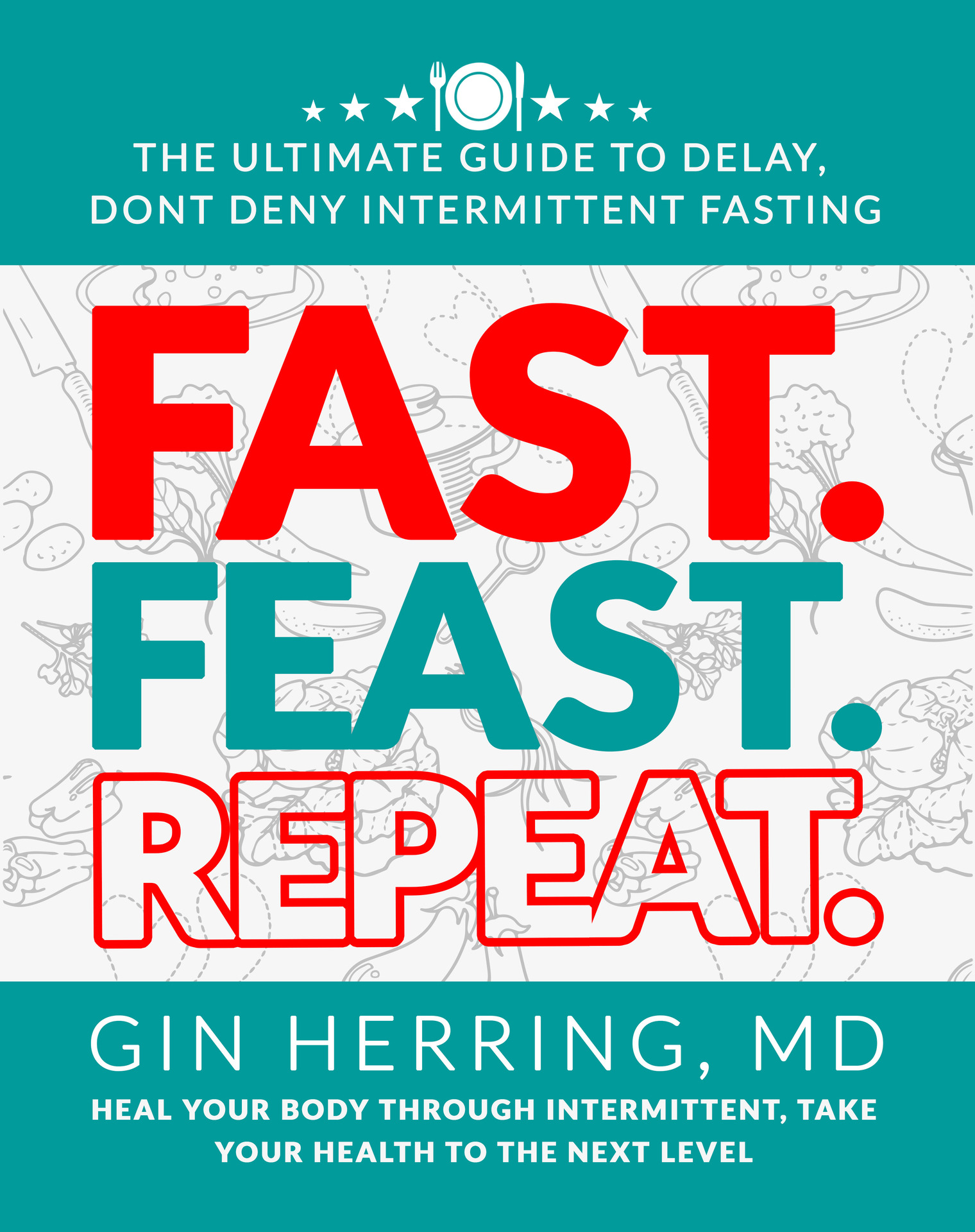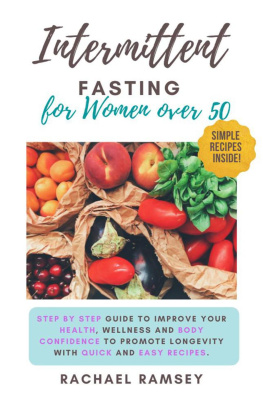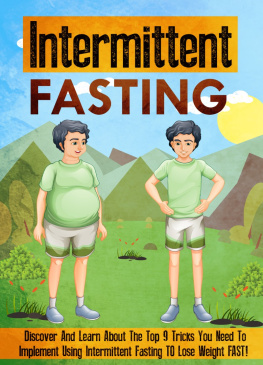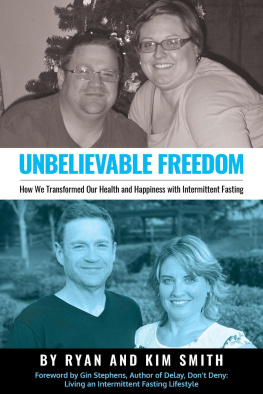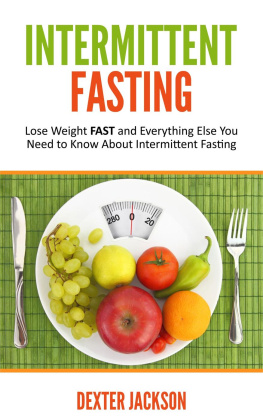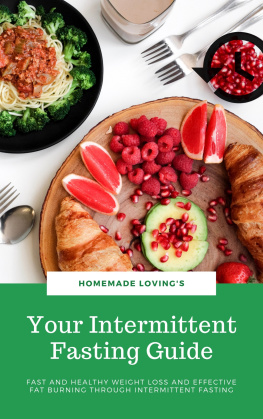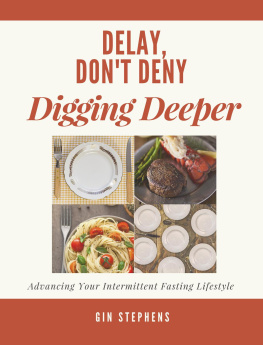FAST. FEAST. REPEAT.
BY GIN HERRING, MD
Copyright 2020 by Gin Herring - All rights reserved.
The trademarks that are used are without any consent, and the publication of the trademark is without permission or backing by the trademark owner. All trademarks and brands within this book are for clarifying purposes only and are the owned by the owners themselves, not affiliated with this document.
Contents
Introduction
Do all the intermittent fasting success stories fascinate you? Do you want to lose weight and live a healthy life without radical dieting? Then intermittent fasting is the right fit for you. This method of fasting is fairly popular for its amazing health effects; whether it is the weight loss or fight against aging, inflammation, or cancer, the fasting has proved to be a non-medicinal long-term treatment for all. Intermittent fasting makes use of our natural Eat and No-eat cycle and regularizes it to produce vivid results. It sets a fed state, prescribes an eating window, and limits the caloric intake; together, these steps make up the entire intermittent fasting approach. In this cookbook, you will find all the details about the basic concept of intermittent fasting, what benefits it offers, and what type of meals you can have to make this method effective.
What is Intermittent Fasting?
Intermittent is best described as cyclic fasting, this method is aimed at reducing the overall caloric intake in a day without the use of radical dieting, which is considered unhealthy, and it can also cause malnutritional. Some people often take fasting as an unhealthy and damaging practice for the body; however, scientific research has claimed otherwise. Research says that intermittent fasting has been producing miraculous results over the years; whether it is this age or the ancient one, fasting remained an important part of peoples life because it is healthy. The term intermittent fasting represents a wide range of fasting methods, which are shared in the latter part of this section. All these methods are created according to the varying health goals, body types, diet, and lifestyle, but they are equally effective.
The fasting actually works well through ketosis. When the glycogen reserves in the body are entirely consumed, then there is no glucose available, then the body is forced to go into ketosis, which then starts breaking down fats to release energy through ketones. The release of ketones and the breaking of fats are the real factors behind the effectiveness of intermittent fasting. This is the reason that intermittent fasting is often paired or compared with the ketogenic diet because it is used or opted along with that diet to harness the same health benefits.
Health benefits of Intermittent Fasting:
The following are some of the known and commonly reported health benefits of intermittent fasting.
- Weight loss
Weight loss is the most promising health benefit of intermittent fasting. It is considered as a better alternative to dieting because it is relatively safe and offers guaranteed results. And it is tested that if intermittent fasting is carried out with caloric restriction, it can reduce 2-3 pounds of weight within a week. Intermittent fasting sets out a caloric limit for each dieter, and people can practice this limit according to their body needs and complications.
- Boost Metabolism:
Intermittent fasting is known to be a metabolic booster. What actually boost our metabolism is an improved regulation of hormones and neurotransmitters; intermittent fasting is capable of producing such metabolites, fasting increases the pace of natural body processes. During the Fasting State, the body learns to burn the fats to extract energy, so it speeds up it's working to meet the energy needs.
- Anti-Aging:
Researchers have always been able to find a strong correlation between longevity and a healthy diet; what science today has unraveled is that the entire lifestyle, along with the diet, keeps the body cell and active. Intermittent fasting through its caloric restriction-CR regime is found to be most effective in controlling aging. Reduced caloric intake is responsible for extending life up to 20 to 40 percent, given that a person eats nutritious and healthy food in between the fast.
- Reduced heart disease risk
The weight gain alone can lead to further complications and severing of other symptoms like insulin resistance, high blood cholesterol, lack of sleep, etc. Together these health conditions can seriously clog the veins and arteries, which then affects heart health.
- Diabetes:
Insulin resistance is the primary problem, which then leads to diabetes. When the body stops responding to insulin, the pancreatic cells produce more insulin to lower the blood glucose levels. The excessive insulin production over a longer period of time ultimately worn out the pancreatic cells, and they lose the ability to produce necessary insulin levels, thus leading to diabetes. Since intermittent fasting can prevent insulin resistance by naturally lowering the blood glucose levels, it also reduces the risks of diabetes.
- Oxidative stress:
The human lifestyle and an unhealthy diet have drastically added up to the average oxidative stress, which leads to several health complications; the body needs detoxification to get rid of those free radicals. During fasting, the ketosis kicks in, which
- Fasting Cures Cancer:
Fasting can improve the Immune system, which helps the patients to fight against all sorts of diseases, especially cancer. During fasting, there is an increased production of lymphocytes that kills the pathogens or agents that may lead to cancer. Several of the cancer treatments also use this natural immune system to fight against the cancerous cells.
- Inflammation:
Inflammation is the swelling of body tissues and organs for any practical reason. In people over the age of 50, inflammation is common and can result from the hormonal or electrolyte imbalance. Accumulation of uric acid and high sugar and cholesterol levels may also cause inflammation. Intermittent fasting can regulate hormones and electrolytes in the body, which prevents inflammation.
Ways to Carry out Intermittent Fasting:
There is a number of ways in which you can try the intermittent fasting because there is no one fixed formula for all; it all depends on your end goals:
- The 5:2 method
The 5:2 method suggests the number the fasting days in a week. In this method, a dieter can fast for 2 days per week and normally eat for the rest of the 5 days. On the fasting, the time must be adjusted such that the eating period would only allow you to consume 500 calories or less. The 2 Fasting days can be any two non-consecutive days of the week of your choice.
- The Crescendo Method:
This method of intermittent fasting has recently emerged, and it was adopted by people of different gender and ages. The crescendo method suggests 2 or 3 days a week, and for 12-16 hours a day, that means if a person chooses a 12 hours limit for the fast, then he can fast for three days in a week and 16 hours for 2 days a week. In this way, it is considered a bit flexible for most of the people who cannot afford otherwise fast.

